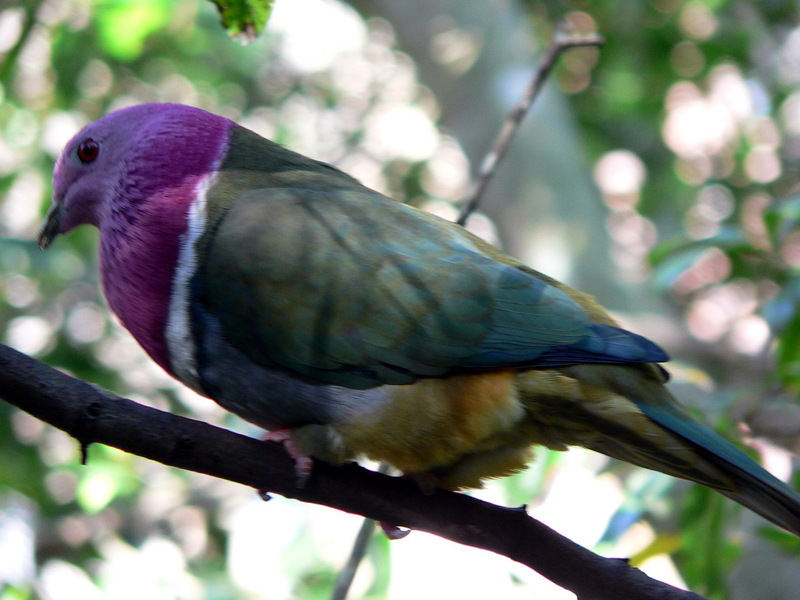|
| 질의: Orange fruit dove | 결과: 36번째/39 | |
Pink-headed Fruit-dove (Ptilinopus porphyreus) - Wiki
| 제목: | Pink-headed Fruit-dove (Ptilinopus porphyreus) - Wiki
| |

| 해상도: 2016x1512
파일크기: 946521 Bytes
촬영일: 2006:01:12 15:08:31
사진기: DMC-FZ3 (Panasonic)
F number: f/2.8
Exposure: 10/400 sec
Focal Length: 411/10
등록시간: 2007:12:20 10:57:19
|
Pink-headed Fruit-dove
From Wikipedia, the free encyclopedia
Order: Columbiformes
Family: Columbidae
[Photo] Male Pink-headed Fruit-dove, Ptilinopus porphyreus. Pictures from Disney's Animal Kingdom. Taken by Raul654 in January, 2006. URL: http://en.wikipedia.org/wiki/Image:Ptilinopus_porphyrea2.jpg | Permission is granted to copy, distribute and/or modify this document under the terms of the GNU Free Documentation License, Version 1.2 or any later version published by the Free Software Foundation; with no Invariant Sections, no Front-Cover Texts, and no Back-Cover Texts. A copy of the license is included in the section entitled "GNU Free Documentation License". |
The Pink-headed Fruit-dove, (Ptilinopus porphyreus) also known as Pink-necked Fruit-dove or Temminck's Fruit Pigeon, is a small colourful dove.
The Pink-headed Fruit-dove is a resident breeding endemic bird in Indonesia where it occurs in the mountain forests of Sumatra, Java and Bali at altitudes of 1000-2200 m. It builds a flimsy nest in a tree and lays one or sometimes two white eggs which are incubated for 20 days to hatching, with a further 15-16 days to fledging. It is a shy and inconspicuous species, generally seen singly or in pairs, but flocks of up to 17 birds may form at favoured fruit trees.
The male has a purple-pink head, neck and throat, bordered below with a white band outlined in greenish black. The upperparts are green and the underparts grey, with yellow undertail coverts. The iris is orange, the bill is greenish, and feet are pink. The female is duller than the male, with a weaker breast band, and the juvenile is an even drabber version of the female. The call is a soft hoo.
This dove feeds on figs, small fruit and berries in the upper canopy of the forest, where it is well-camouflaged amongst the green foliage.
The Pink-headed Fruit-dove is restricted to less than 12,000 km² of forest in three sites on Sumatra, sixteen on Java and one on Bali, always on forested mountains at least 2000m high. Most sites are smaller than 200 km² and shrinking. However the species is very inconspicuous and it is not yet thought to be threatened.
The Pink-headed Fruit-dove is evaluated as Least Concern on the IUCN Red List of Threatened Species.
http://en.wikipedia.org/wiki/Pink-headed_Fruit-dove
| The text in this page is based on the copyrighted Wikipedia article shown in above URL. It is used under the GNU Free Documentation License. You may redistribute it, verbatim or modified, providing that you comply with the terms of the GFDL. |
|
^o^
동물그림창고 똑똑전화 누리집
^o^
|
|

